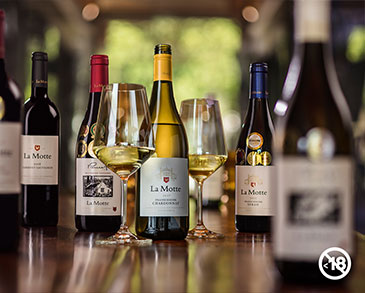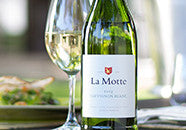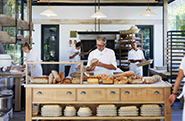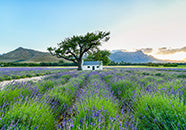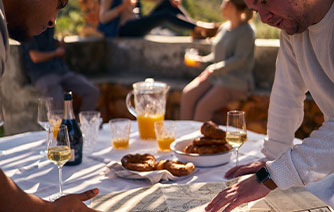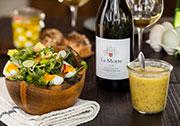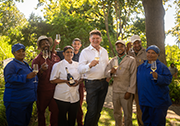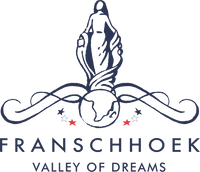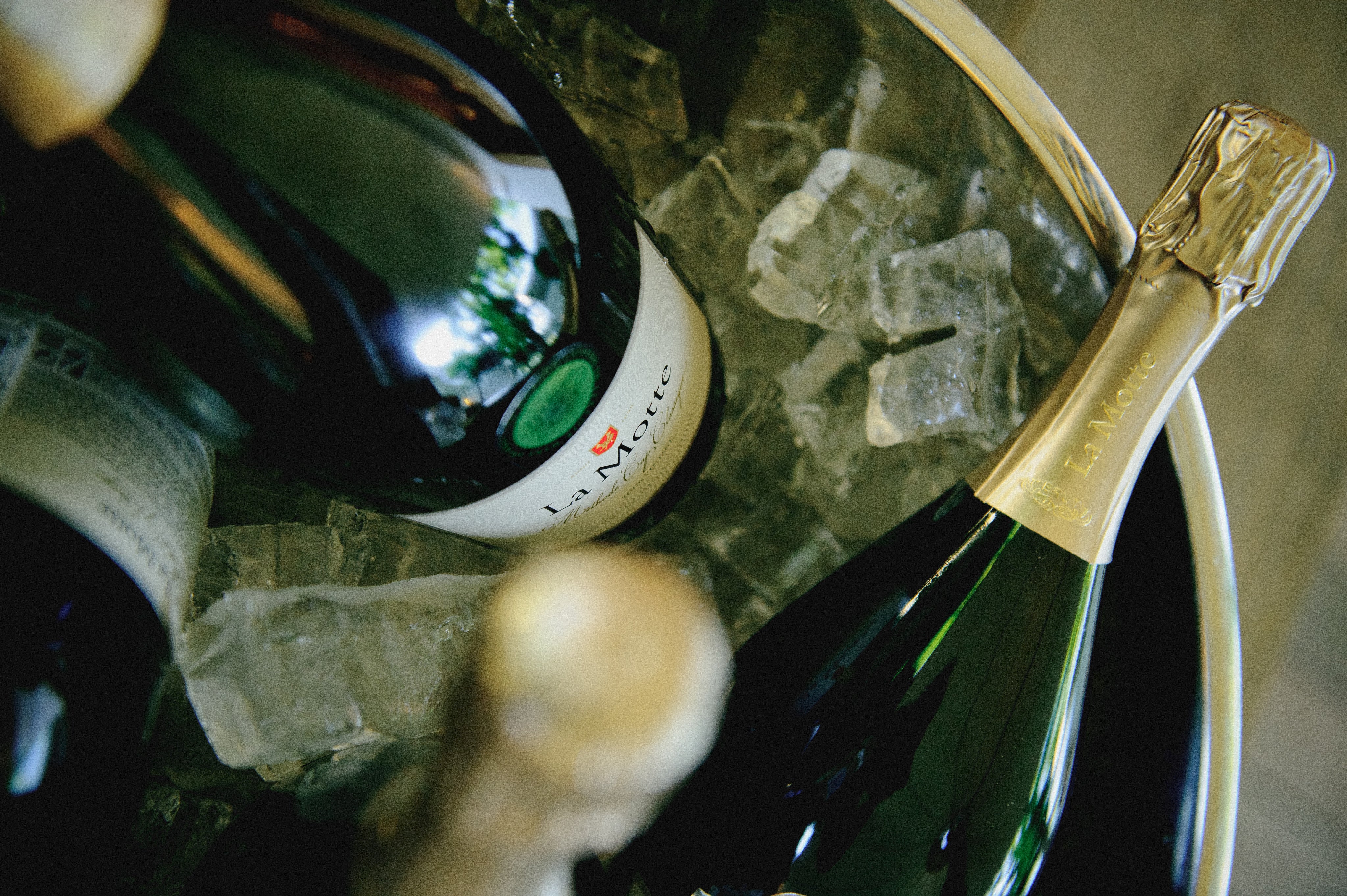
This weekend sees the very popular annual Franschhoek Cap Classique and Champagne Festival taking place at the Huguenot Monument in Franschhoek.
We will be showcasing our 2010 La Motte Méthode Cap Classique Brut at this event.
A blend of 68% Pinot Noir and 32% Chardonnay, the grapes for this MCC were harvested between 18 and 20 degrees Balling, bunches were whole-pressed according to a special sparkling wine programme where after the juice was cool-fermented. The two varieties were fermented separately before blending and a part of the Pinot Noir was fermented and matured in wood. Secondary fermentation took place in the bottle and the wine was left on the lees for 25 months before being disgorged in November 2012.
No dosage was added to the Brut Natural style of sparkling wine ensuring the natural residual sugar stays in harmony with the natural acids. The nose offers fruitiness with predominant strawberry flavours and secondary notes of brioche and nuts.
With its dominant Pinot Noir percentage, the wine has a champagne blush with a fine mousse promising an exciting, fresh wine with complexity and finesse.
While the taste and style of this MCC is ample reason for celebration, its limited production of only 3400 bottles and its beautiful heavy bottle luxuriously packed in a grey faux suède bag also makes it a treasured gift.
Earlier this year the Franschhoek Valley launched South Africa’s first Cap Classique Route. With the Franschhoek Cap Classique and Champagne festival a highlight on the annual wine calendar and 18 wineries in the Franschhoek area producing Méthode Cap Classique wines, it seemed like a natural step.
Sparkling wines has become very fashionable and popular of late. No longer are these pressurised bottles only opened at weddings and celebrations. Nowadays they are enjoyed as a drink of choice while they are often suggested as wine partners to food.
The reason why sparkling wines made in the traditional French method are such an important part of the wine industry in the Franschhoek region can easily be attributed to the valley’s culture of food and wine, the everyday joie de vivre enjoyed by tourists and visitors and the celebratory spirit of the valley.
These lifestyle elements are however not reason alone. The terroir of the Franschhoek Valley is very much suited to the varieties traditionally used in the making of champagne or, in South Africa’s case, Méthode Cap Classique.
Chardonnay often makes out the dominant percentage of MCC wines produced in the area. Franschhoek has a typical Mediterranean climate, but with the changing aspects provided by the mountain surrounding the valley, Chardonnay vineyards are planted at a variety of sites, from the valley floor to elevations as high as 600 m above sea level. Some Chardonnays grown on the Southern facing slopes offer a chalky minerality while citrus and tropical fruit are more evident in Chardonnay grown in the valley.
Although the best-known examples of South African single variety Pinot Noirs mainly originate from the Hemel and Aarde Valley with its Atlantic ocean influences, the Franschhoek Valley produces exceptional Pinot Noir wines mainly used as blending partners for the beautiful Chardonnays, resulting in the exceptional sparkling wines of the valley.
Terroir also plays a very important role in La Motte’s MCC with both the 2008 and 2009 vintages have been selected the Top sparkling wines in the National Terroir Wine Awards. The Chardonnay and Pinot Noir used for La Motte’s MCC originate from the Franschhoek estate where the Chardonnay was planted in 1997 and the Pinot Noir in 1985. These vineyards have been managed organically since 2006 and canopy management ensures a perfect balance between leaf coverage and yield. The vineyards grow in Clovelly soil with a high sand content.
Analysis of the 2010 La Motte MCC
Alcohol 12.32%
Residual sugar 2.3 g/l
Total acidity 7.3 g/l
pH 3. 29
The 2010 La Motte Méthode Cap Classique is available at the cellar door for R330 per bottle.

